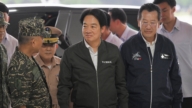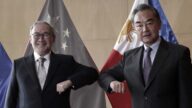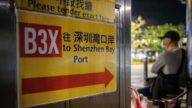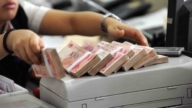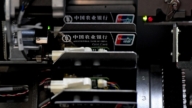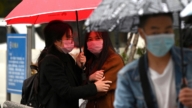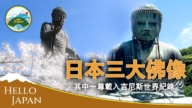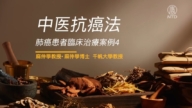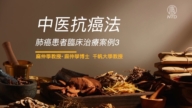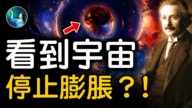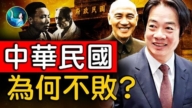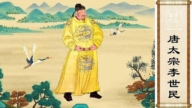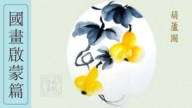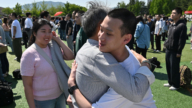【新唐人2012年9月11日訊】中共主席胡錦濤,9號,出席「亞太經合組織」第20次領導人非正式會議期間,同日本首相野田佳彥進行了大約15分鐘的交談,就當前中日關係和釣魚島問題表明瞭中方立場。胡錦濤的措詞被外界認為,是至今以來在釣魚島問題上最強硬的表態。但是胡錦濤一強硬,似乎給喉舌媒體《新華社》帶來了難題。
《新華社》先是在中午12點35分發出報導,說胡錦濤和野田佳彥交談時「鄭重指出,近來,中日關係因釣魚島問題面臨嚴峻局面」,「日方採取任何方式『購島』都是非法的、無效的,中方堅決反對。」
不過,這篇稿子發出半小時後,被「新華社總編室」通告「撤銷」,沒有解釋原因。在撤稿同時,《新華社》發出另一則短稿,刪除了被撤報導中,中方堅決反對日方「購島」、希望日方不要作出錯誤決定等內容。僅簡單報導胡錦濤「同日本首相野田佳彥進行了交談。胡錦濤就當前中日關係和釣魚島問題表明瞭中方立場」。
但到了晚間8點25分,《新華社》再發出最初的報導,但在文中加上呼籲日方「同中方一道」的一句。
美國「紐約城市大學」政治學教授夏明認爲,這表示了中共高層內部不和諧。
美國「紐約城市大學」政治學教授 夏明:「《新華社》它的發稿,現在我們可以看到,中國國內出現非常混亂的一個局面。混亂表現在,中共上層基本上已經沒辦法保持一個聲音了。各方面利益,各種聲音爭吵,而且出現了許多雜音。那麽現在涉及到外交政策上,我們都看到,也有不同的聲音。」
香港媒體分析認為,《新華社》將報導內容刪除,原意是﹕不想火上加油,進一步惡化中日關係。但後來卻因爲受民間輿論壓力,和內地反日情緒沒有降溫,導致原來報導「易放難收」。
夏明教授指出,釣魚島問題目前被政府當作一張民族主義的牌在利用,但其實民族主義有它的危險性。
夏明:「現在中共政府要拿到釣魚島,希望基本上是很渺茫的。所以在這種情況下,爭鬥本身對中國來說,沒有太大的意義。那麽中國在利用釣魚島事件打民族主義這張牌。可怕的地方在於甚麽﹖老百姓的民族主義情緒煽動以後,中國政府在釣魚島事件上要想有任何妥協,反而是騎虎難下。」
二戰結束後,1972年美國歸還沖繩,根據當時的《美日安保條約》第五條,釣魚島的施政權屬於日本。1951年,周恩來明確表態:琉球群島(含釣魚島)是日本領土。1978年8月,中國和日本簽署和平條約,同意「留給下一代」解決島嶼爭端。
美國紐約「羅賈斯特理工大學」榮譽退休教授朱永德指出,由於歷史上的錯誤,使得今天釣魚島問題難以解決。
美國「羅徹斯特理工大學」歷史學教授 朱永德﹕「這就是歷史上面犯的錯誤一直沒有得到矯正。我覺得這個關鍵,在我的印像當中,是鄧小平說的,『這個問題,留給下一代去解決。』那麽現在下一代來了,北京似乎到目前為止,他的智慧,沒有能夠超過怎麽樣去解決這個問題的智慧。」
雖然胡錦濤終於在釣魚島問題上表現出強硬態度,但《新華社》對於中共最高領導人的發言報導,半天之內做出兩度修正,不僅使海外中文媒體詫異,連日本《時事通信》也說是「罕見的混亂」。
Hu Defends Diaoyu Islands—Xinhua Revises Report Twice
September 9—Chinese Communist Party (CCP) Chairman
Hu Jintao attended the 20th APEC Leaders’ Informal Meeting.
During this period, Hu and Japanese Prime Minister
Yoshihiko Noda had a 15-minute conversation.
Hu made known to Noda, China’s stance on the current
Sino-Japanese relations and on the Diaoyu Islands issue.
Outside views say, Hu’s words showed the toughest stance
by the CCP on the Diaoyu Islands (Senkaku Islands) issue
Hu’s tough attitude is causing difficulties for the CCP’s
mouthpiece media, the Xinhua News Agency.
Initially at 12:35, Xinhua News Agency reported that,
at the APEC Leaders’ Informal Meeting,
CCP leader Hu Jintao had “solemnly pointed out” to
Japanese Prime Minister Yoshihiko Noda that,
“recent Sino-Japanese relations face a grim state".
Xinhua said, on the Diaoyu islands (Senkaku Islands) issue,
“whatever ways Japanese are using to buy the islands,
they are illegal, invalid, and China resolutely opposes it.”
However, half-an-hour after issuing the report, Xinhua’s chief
editor’s office removed the script without any explanation.
At the same time as the withdrawal, Xinhua News Agency
issued another short draft, changing their reporting stance of
“China resolutely opposes Japan from buying the island" to
“China hopes Japan will not make the wrong decision".
Xinhua only briefly reported on Hu and Noda’s conversation,
saying Hu had expressed China’s stance on the current
Sino-Japanese relations and the Diaoyu Islands issue.
However, at 20:25, “Xinhua issued their initial report again,
adding a sentence: “China called on Japan to work together”.
New York City University(NYCU)’s political professor, Xia
says, it means there is disharmony within the CCP’s top level.
[Xia Ming, NYCU Political Professor]: “We can see
from Xinhua News Agency’s script that it is very confusing in China;
the confusion lies in there being no way to maintain
a one voice within the inner CCP.
There are the interests of all parties, a variety of quarrels,
and also a lot of noise.
When it comes to foreign policy, we have also seen that
there are differing voices.”
Hong Kong media analyses, “The Xinhua News Agency
deleted the content of their report;
its intention was of not wanting to further deteriorate
the Sino-Japanese relations.”
But later, Xinhua had to issue the report again under pressure
from public opinion and anti-Japanese sentiment;
the original report proved ‘easy to publish
but difficult to withdraw’.
Professor Xia Ming says the Diaoyu Islands issue is utilized as
a brand of nationalism by the CCP; yet nationalism is risky.
[Xia Ming]: “The CCP wants to get Diaoyu Islands, but really
it’s hopeless, so in this case, it does not make any sense fighting;
the CCP is utilizing it as a brand of nationalism.
What’s terrible is that the CCP incited the public’s nationalist
sentiments on the Diaoyu incident—there’s no compromise and it’s difficult to end.
After the end of World War II, in 1972, the U.S had
returned Okinawa Island to Japan.
According to the US-Japan Security Treaty, the administration
authority of Diaoyu Islands belongs to Japan.
In 1951, Zhou Enlai made it clear that, the Ryukyu Islands
(including Diaoyu Islands) are Japanese territory.
And in August 1978, China and Japan signed a peace treaty,
agreeing to let the next generation resolve the islands dispute.
Zhu Yongde, professor emeritus of New York University
of Rochester (NYUR), points out that, due to historical errors,
the Diaoyu Islands issue is difficult to resolve today.
Zhu Yongde: “The mistakes had been remained from the past.
I think the point is, from my memory, Deng Xiaoping had said
that ‘This issue is left to the next generation to solve’.
So now it’s the next generation, and Beijing’s regime
has no ability to solve this problem.”
Although finally Hu Jintao showed inflexibility
on the Diaoyu Islands issue,
the Xinhua News Agency had made two changes within
half a day, coming from top CCP leaders’ discussions.
This has not only surprised overseas Chinese media,
but also Japan’s Jiji Press, who says it is a rare confusion.


